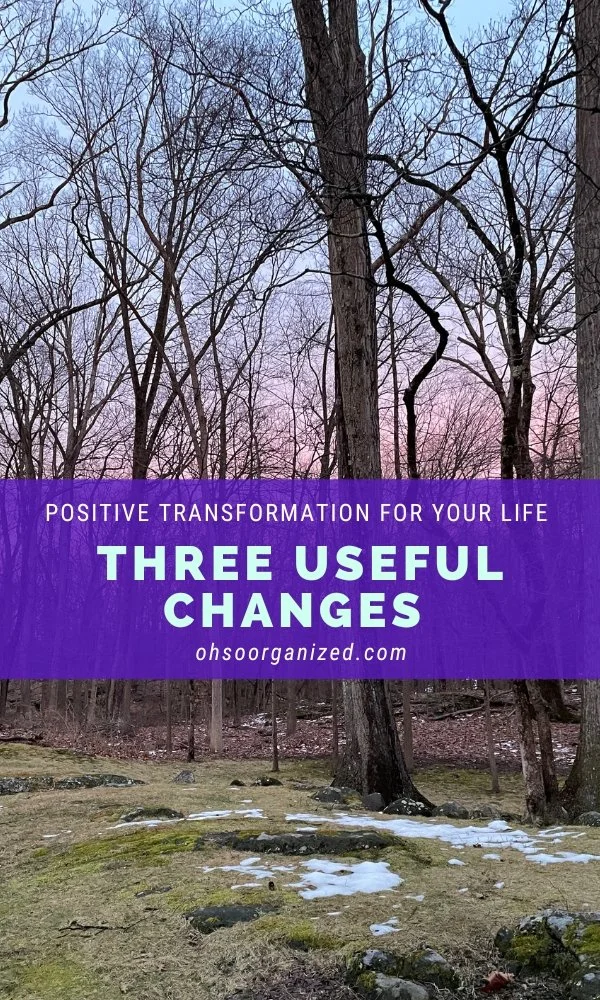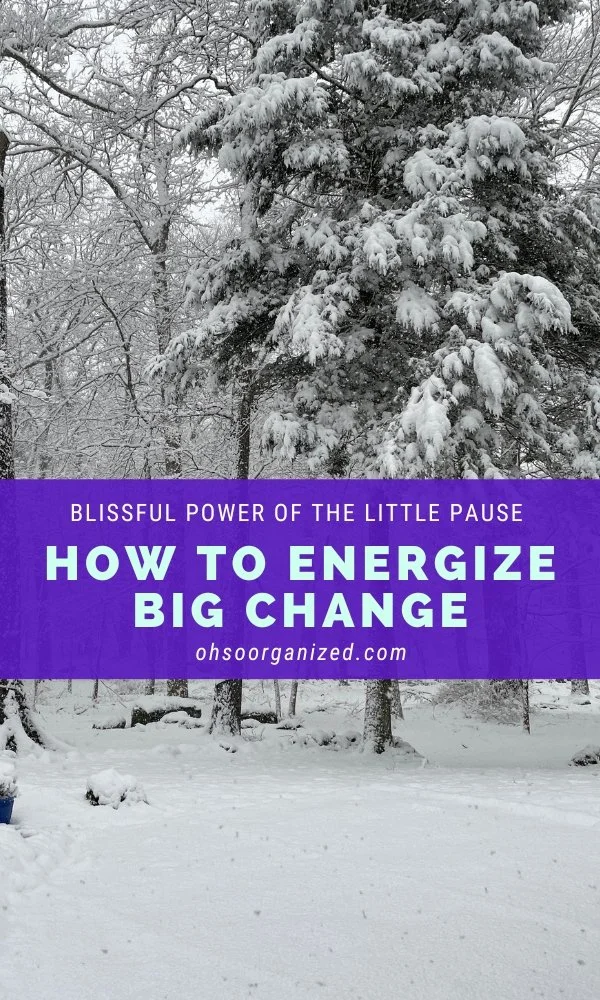A new month just began. While it’s not spring yet, green growth is starting to emerge from the muted winter landscape. Signs of possibilities abound.
It’s an excellent time to check in and locate where you are. How are you doing with your organizing goals? Are you zipping along, moving projects forward, and making things happen? Or are you feeling stuck, overwhelmed, and unsure of your next step?
When people contact me for organizing help, the most common reason is they want to advance, but activation is challenging. The desire is there, but the overwhelm they’re experiencing prevents them from identifying their next step. Without doing next, progress stops.
The Progress Cycle
One Strategy to Get Unstuck
When The Progress Cycle feels elusive, how can you get it started? What can you do when you’re overwhelmed?
To be mindful of the stress you may be experiencing, I’m simplifying the options and sharing only one strategy. Here is the strategy: To get unstuck, reach out for help to identify your next step.
There is no reason to go it alone. Support can come from a trusted, nonjudgmental family member, friend, colleague, or professional organizer like me. Together, we will identify your next step. Figuring out what happens next starts the cycle, enabling activation, progress, momentum, and movement toward your goal.
“To get unstuck, reach out for help to identify your next step.”
What Does a Next Step Look Like?
During virtual organizing sessions, I help my clients identify the next step and encourage action. We work on closing the gap between thinking and doing. Having a session with me adds motivation and accountability, which results in progress. Below is a small sample of the types of next steps clients identified and actions taken during their one-hour virtual organizing sessions:
Cleared out and organized an email inbox
Identified and committed to the next tiny steps of a large project
Edited, organized, and cleared desk papers
Set up a paper management system
Created a list of home organization projects and determined where to begin
Unpacked and put things back in order after returning from vacation
Identified, discussed, and prioritized next step options
Edited and organized dresser drawers
Assessed and let go of some of your deceased loved one’s belongings
Determined the need for and created a good sleep hygiene plan
Edited and organized memorabilia
Decluttered a chair covered with books, papers, and clothes
Progress was made during the organizing sessions and continued between sessions. Using a combination of support, focus, and small blocks of time, your next step will happen.
Have you ever reached out for help about your next step? If so, what was your experience like? I’d love to hear your thoughts.
If you want guidance with your next step, I’m here to help. Please email me at linda@ohsoorganized.com, call 914-271-5673, or click here to schedule a Discovery Call. Progress is possible, especially with support.










